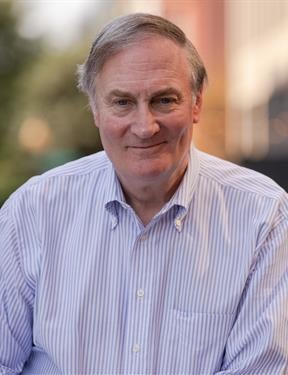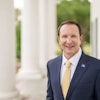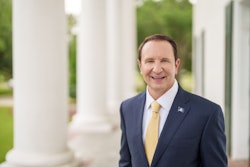Although the world of higher education achieved some policy victories this year, its grandest ambitions were frustrated, according to a public policy year-in-review panel hosted Monday by the American Council on Education (ACE).
Perhaps the most significant public policy moment for colleges and universities this year was the failure of President Joe Biden’s Build Back Better (BBB) legislation, after the administration and West Virginia Senator Joe Manchin could not at arrive at a deal. BBB would have included free community college, incentives for states to perform equity audits of the higher ed funding, and a $900 increase in the Pell Grant. BBB’s eventual replacement, the slimmed-down Inflation Reduction Act, was “far less significant,” according to the panel, committing tens of millions of dollars rather than tens of billions.
Student loan forgiveness is another area where high hopes were met with partial progress. President Biden took flack from all sides after announcing his plan to forgive up to $20,000 in student loan debt for some students in August but has received 26 million applications for forgiveness. However, the Biden administration cannot process these applications while it awaits a Supreme Court ruling on the program’s legality.
 Terry Hartle, ACE’s senior vice president for government affairs and public relations
Terry Hartle, ACE’s senior vice president for government affairs and public relations
“It’s really flown under the radar,” said panelist Jon Fansmith, ACE’s assistant vice president for government relations.
Panelists also discussed the current lame duck congressional session, which has been more notable thus far for what hasn’t happened than for what has. Although advocates saw a window for a deal on the undocumented population that would protect DACA recipients, who make up roughly 2% of all higher ed students, nothing got done. And although some were afraid that the just-passed 2023 National Defense Authorization Act (NDAA) would contain overly restrictive research security provisions, this didn’t happen either. The NDAA did include a program for minority serving institutions to build their research capacities, obtain Department of Defense funds, and become R1 institutions, which panelists cheered.
There is also much that remains unsettled as the legislative calendar winds down— mainly, a massive omnibus spending bill that would fund the government and could contain several items pertaining to higher education. Although nothing is known for sure, panelists raised the possibility of a $500 increase in the Pell Grant, additional infrastructure funding for historically Black colleges and universities, tribal colleges and universities, and other minority serving institutions, and an extension of subsidies for the Build America Bonds acts, which many public institutions have used for financing.
 Jon Fansmith, ACE’s assistant vice president for government relations
Jon Fansmith, ACE’s assistant vice president for government relations
The situation in the House of Representatives is less clear. As Representative Kevin McCarthy of California tries to clear his path to the speakership, he has announced that contested chairmanships will not be filled, including that of the Education and Workforce Committee, which is sought by Virginia Foxx of North Carolina and Tim Walberg of Michigan. If Foxx comes to power, she’s likely to pursue investigations into the Biden administration’s loan forgiveness program and into free speech issues on campus, said Hartle, but there’s likely to be little legislation.
Next year is likely to be dominated by Supreme Court cases, said the panelists, including expected rulings on the legality of affirmative action and loan forgiveness. But there’s likely to be action elsewhere as well. The Department of Education may release regulations on Title IX sexual assault cases. The House is forming a select committee on China that might investigate foreign funding to higher education and research security provisions. Hartle also brought up the General Accounting Office’s recent report criticizing colleges and universities for unclear financial aid letters, which Fansmith called “very damning.” Hartle said that an effort by the Paying for College Transparency Initiative, a recently formed coalition of ten higher ed organizations, might result in self-regulation, lest Congress impose a one-size-fits-all solution.
2023 may be a bumpy ride, at least initially, and Hartle preached patience.
“We’re going to have a great deal of controversy and confusion in the first couple of months of next year,” he said. “A new Congress always thinks it can get an awful lot of stuff done. They’ll come in in January with a huge agenda and will be bouncing back and forth trying to figure out what issues they’re going to settle on. By about Memorial Day, we’ll have an idea for what their priorities really will be.”
Jon Edelman can be reached at [email protected].


















